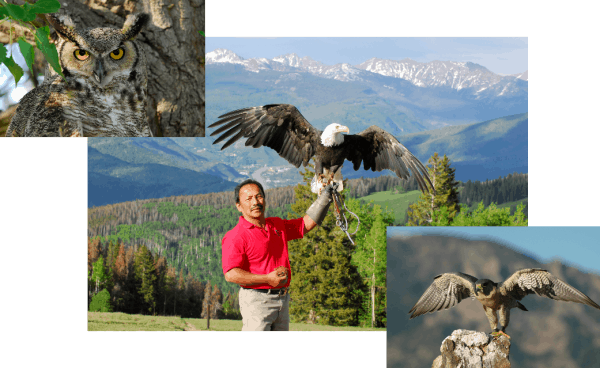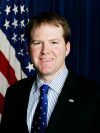Forestry Management: A Solutions-Based Symposium
May 16, 2019 | Denver, CO ::

winter forest
As forest fires in the Western U.S. become more ubiquitous and more destructive – taking human lives, destroying acres of forest, jeopardizing endangered species and habitats, and costing billions in property damage each year – the need for a solutions-based dialogue is imperative. The most effective strategies for forestry management will need to consider ideas from all sectors: governmental, nonprofit, tech, industry, and academia. To facilitate this crucial dialogue, stakeholders will come together for a solutions-based forestry symposium where guests will learn about best practices, newest technologies, and lessons learned for forest management from a variety of expert voices in forestry. These experts will come together for a panel discussion focused on the most critical issues facing forestry, today.
[ymae_line]
Learning Outcomes
- Identify the specific challenges faced in forestry today
- Define leadership and how it relates to forestry issues
- Create solutions for forestry management success
- Appraise the takeaways from case studies in forestry
- Construct a crisis plan to deal with forestry emergencies
- Recognize the important elements of crisis management
- Describe working relationships with the Federal, state and local governments
- Examine the importance of partnerships and funding in forestry projects
- Asses the vulnerabilities caused by climate change
- Illustrate the anatomy of wildfire liability and litigation
- Identify the implementation of new technologies used for entomological issues in forestry
- Compare the different tech tools that assist foresters on the job
- Interpret satellite images of various forestry conditions
- Analyze ecological metrics and data
- Forecast future development in GIS technology
Credits

EUCI is accredited by the International Accreditors for Continuing Education and Training (IACET) and offers IACET CEUs for its learning events that comply with the ANSI/IACET Continuing Education and Training Standard. IACET is recognized internationally as a standard development organization and accrediting body that promotes quality of continuing education and training.
EUCI is authorized by IACET to offer 0.9 CEUs for this event.
EUCI is in process for ISA pre-approval credits, please check back for status updates.
Requirements for Successful Completion of Program
Participants must sign in/out each day and be in attendance for the entirety of the conference to be eligible for continuing education credit.
Instructional Methods
Case studies, PowerPoint presentations, workshop exercises, illustrations, questions and answers, learner feedback
Thursday, May 16, 2019
8:00 – 8:30 a.m. :: Opening Reception
![]() Registration and Continental Breakfast
Registration and Continental Breakfast
Presentation – Meet the Birds by HawkQuest
Four rescued raptors – a Bald Eagle, Falcon, Hawk, and Owl – will join our Breakfast Reception for photo opportunities with guests to raise awareness of the wildlife aspects of forestry.

Photo courtesy of HawkQuest
8:30 – 9:00 a.m. :: Inaugural Address
9:00 – 9:45 a.m. :: Building Resilience in Western Forests: Recommendations for Pre and Post Fire
- The foundations of forest resilience
- Best practices for building resilient forests and creating fire safe communities
- Techniques for post fire management to enhance future resilience
- The science of forest response to climate change
- Case studies from successful communities in the West
- Concepts for future state and federal policy
Eric Holst, Assoc. VP of Working Lands Program and Ecosystems, Environmental Defense Fund
9:45 – 10:30 a.m. :: New Strategies and Technologies to Reduce the Impacts and Threat by Tree Pests Such as Bark Beetles and Wood Borers, Climate Change, and Fire
- Utilization of new technologies and resources to protect trees
- Learn basics about wood infesting insects
- Implementation of methods to reduce insect pests
- Better understand link between fire, climate, insects and trees
- Diagnostic tools for insect detection and invasive species monitoring
Richard Hofstetter, Professor of Forest Entomology, Northern Arizona University
10:30 – 11:15 a.m. :: Protecting Forest and Municipal Water Supplies – Lessons Learned from the 2012 Waldo Canyon Fire
- Changing conditions of forest and water resources in Colorado
- Impacts of the Waldo Canyon Fire on water supplies and infrastructure
- Forest management strategies of a Front Range municipal water provider
- Importance of partnerships, funding, and legislative action to implementation of forest projects
- Maintaining the high initial investments, need and use of prescribed fire
Eric Howell, Forest Program Manager and Deputy Chief of Utilities Catamount Wildland Fire Team, Colorado Springs Utilities
11:15 – 12:00 p.m. :: “Lessons Learned” in the Field
- Lessons learned demonstrate need to exceed minimum compliance standards and past practices for sustainable cost and risk management
- Benefits to reliability/cost matrix with annual inspection vs. multi-year cycle prune or “hot spotting”
- Defining reliability and risk-driven pruning standards and expanded ROW management
- Utilizing outage data and tiered risk metrics for educated work prioritization that yields effective dollars spent in the field
- Collaboration across agencies with Integrated Vegetation Management practices to establish multi-use ROWs that decrease maintenance costs and create corollary positive externalities for society and the environment (fuel breaks, pollinator habitat, etc.)
Gabe Hack, Davey Utility Forester
12:00 – 1:00 p.m. :: Group Luncheon
1:00 – 1:30 p.m. :: Forest Fire Liability and Litigation
- Know the parties involved, residential & commercial property owners, businesses, state and federal agencies, subrogation insurers, individuals (bodily injury and/or wrongful Death
- Causes of action – negligence, duty, breach of duty, standard of care, foreseeability of harm, causation, vegetation management, engineering/design
What is inverse condemnation? - Damages – real property, person property, personal injury, business interruption, fire suppression and investigation costs, subrogation, attorneys’ fees, prejudgment Interest, litigation costs
Richard Finn, AV rated Trial Attorney, Burnham Brown
1:30 – 2:00 p.m. :: 10 Critical Keys to Improve your Crisis Management
- Why having a Crisis Management System is essential
- How understanding risk and threats can help prepare organizations to prevent and respond better
- Why stakeholder engagement is an essential part of crisis communication
- How to prepare the media to more fairly cover the situation
- How to better help multilingual/multicultural, vulnerable and disabled communities
- How to improve your working relationships with federal, state and local governments
Bob Jensen, FMR Department of Homeland Security Principal Deputy Assistant Secretary for Public Affairs and Director of External Affairs for FEMA
2:00 – 2:30 p.m. :: The Top 5 Imperatives for Crisis Communications During Wildfires
- Write a Plan and Execute it – Boss’s Buy-In in Writing is “Get-Out-Jail-Free-Card”
- Go to the Source – Ask questions. Don’t be a Big Shot – Be Humble – Always give Honest, Thoughtful Counsel to Decision makers
- Develop Your Message – Tell Me A Story: Personal, Emotional, Factual, Localized, Powerful and Relatable – with a Call to Action
- Know Your Limitations – Surround Yourself with People with Skills and Experience that Complement your Capabilities
- Always Be Training – Find Opportunities & Mentors – Learn from Strengths and Weaknesses
- Align Validators with 50/20 Plan – Identify the 50 People, Outlets, Thought Leaders You Need to Communicate With – and the 20 Ways You’ll Engage Them
Mark Pfeifle, FMR White House National Security Advisor and Director of Communications for the DOI
2:30 – 3:00 p.m. :: Leadership Challenges Faced in Forestry Management
- What does it mean to be a leader?
- What is unique about leadership in forestry?
- Creative out-side-the-box thinking for forestry success
- How to achieve success through consultation, communication and cooperation, all in the service of conservation
- Forestry challenges of today and how to be prepared
Gale Norton, FMR Secretary of the Department of the Interior and Attorney General of the State of Colorado
3:00 – 3:30 p.m. :: Networking Break
3:30 – 5:00 p.m. :: Panel Discussion moderated by Colorado State University’s Warner College of Natural Resources
All speakers are invited to participate in an audience-driven panel discussion. This will be a unique opportunity where a diversity of perspectives will come together to discuss the most critical issues in forestry. The panel discussion will be open to the press in hopes that the dialogue that ensues will impact the national discussion on forestry management.
Friday, May 17, 2019
7:30 – 8:00 a.m. :: Continental Breakfast
8:00 – 8:30 a.m. :: GIS Technology and Forestry
- Geographic Information Systems Explained
- GIS Applications for Forestry Management
- Environmental Assessment Through New Space Satellite Imaging
- Real-World Examples – Interpreting the spectrum
- Tipping and Queuing – Acting on the Data
- Forecasting Future Developments in GIS Technology
Chris Biddy, CEO, Astro Digital
8:30 – 9:00 a.m. :: Drones and Forestry
- What type of drones are used in forestry
- Regulations and operations
- Future uses for drone technology
- Outside demonstration of drone technology for forestry
Ziv Maron, Drone Specialist, xfold Drones
9:00 – 9:30 a.m. :: Resources and Tools for Forest Planning & Conservation from the NatureServe Network
- Ecological Integrity Assessments for forests and grasslands
- Vulnerability Assessments for climate change planning
- NatureServe Network data on imperiled species
- Ecological metrics for private timberland
- GIS and Data tools for planning
Patrick McIntyre, Senior Ecologist, Western North America for NatureServe
![]() 9:30 – 9:45 a.m. :: Networking Break
9:30 – 9:45 a.m. :: Networking Break
9:45 – 11:45 a.m. :: Workshop – A Roadmap to Create Your Plan – Be Risk Smart and Crisis Ready
In a fast-paced 2-hour workshop, attendees will walk through what it takes to truly be prepared for a major crisis or disaster. Using real world examples, current statistics, and facts; and with a special focus on forestry stakeholders including state and local governments, utilities and insurance industries, Mark and Bob will provide a roadmap for leaders and managers to take back to their organizations. Attendees will integrate all the critical parts to create a strategy that fits their organization’s needs. Finally, attendees will exercise their plan to ensure their organization is ready to handle any unknown threats that it may face in the future.
Mark Pfeifle, FMR White House National Security Advisor and Director of Communications for the DOI
Bob Jensen, FMR Department of Homeland Security Principal Deputy Assistant Secretary for Public Affairs and Director of External Affairs for FEMA
11:45 a.m. – 12:00 p.m. :: Review, Q&A from Day
12:00 p.m. :: Conference Adjourns
 Gale Norton, FMR Secretary of the Department of the Interior and Attorney General of the State of Colorado
Gale Norton, FMR Secretary of the Department of the Interior and Attorney General of the State of Colorado
Gale Norton is the 48th Secretary of the U.S. Department of the Interior, the only woman to head the 153-year-old department, and the FMR Atty General of the State of Colorado. Norton made what she calls the Four C’s the cornerstone of her tenure: Consultation, Communication, and Cooperation, all in the service of Conservation. To implement the Four C’s approach, Norton reached out to states, tribes, local communities, businesses, conservation organizations, and private citizens in a variety of ways. Her initiatives included the improvement of forest management practices; and support for environmentally sensitive energy production on public lands, including renewable sources such as geothermal, wind, biomass, and solar.
 Mark Pfeifle, FMR White House National Security Advisor and Director of Communications for the Department of Interior
Mark Pfeifle, FMR White House National Security Advisor and Director of Communications for the Department of Interior
As White House Dep. National Security Advisor for Strategic Communications and Outreach, Mark Pfeifle was awarded the Army’s Outstanding Civilian Service Award, and as Press Secretary and later as Communications Director for the Department of Interior, Pfeifle created messaging to pass energy and conservation legislation and pro-environmental polices such as the President’s Healthy Forest initiative. Pfeifle was awarded the prestigious Pollie Award for Best Overall Internet Campaign and the Silver Award for Best Use of a Website for Persuasion. His expertise includes national security, energy policy, emerging technologies, and communications strategies.
 Eric Howell, Forest Program Manager and Deputy Chief of Utilities Catamount Wildland Fire Team, Colorado Springs Utilities
Eric Howell, Forest Program Manager and Deputy Chief of Utilities Catamount Wildland Fire Team, Colorado Springs Utilities
Eric Howell has served as Utilities Forest Program Manager and Deputy Administrator of Utilities Catamount Wildland Fire Team since 2008. He is a graduate from Colorado State University and holds BS in Natural Resources Management with emphasis on forest management. He has held a variety of water resource positions involving source water protection and water treatment plant support. Eric is a member of the Pikes Peak Wildfire Protection Partners, Colorado Watershed Wildfire Protection Group, Pikes Peak Fire Learning Network, as well as, a board member for the Coalition for the Upper South Platte, Coalitions and Collaboratives and Colorado Fire Adapted Communities. He is heavily engaged in several partnerships with federal, state, local governments as well as non-profits working to protect critical watersheds vital to Colorado Springs water supply.
 Eric Holst, Assoc. VP of Working Lands Program and Ecosystems, Environmental Defense Fund
Eric Holst, Assoc. VP of Working Lands Program and Ecosystems, Environmental Defense Fund
Eric Holst is the assoc. Vice President of Environmental Defense Fund’s Working Lands Program. He is an expert in developing innovative strategies for environmental management on working forests, farms and ranches. Eric has established productive partnerships with farmers and ranchers, putting the EDF at the forefront of collaborative conservation efforts, including the creation of habitat exchanges as a tool for maximizing conservation dollars for at-risk species like the greater sage-grouse and monarch butterfly. Eric also leads the development of policy solutions to improve implementation and effectiveness of the Endangered Species Act. For Eric, the most exciting aspect of his work is breaking down the preconceived notions about environmentalists and finding common ground with uncommon allies.
 Bob Jensen, FMR Department of Homeland Security Principal Deputy Assistant Secretary for Public Affairs and Director of External Affairs for FEMA
Bob Jensen, FMR Department of Homeland Security Principal Deputy Assistant Secretary for Public Affairs and Director of External Affairs for FEMA
Bob Jensen brings more than 35 years of experience both inside and outside of the U.S. government, most recently as the Principal Deputy Assistant Secretary for Public Affairs for the U.S. Department of Homeland Security. Bob served as a spokesman for the White House’s National Security Council. Bob led the U.S. government’s on-the-ground crisis communications efforts after the massive earthquake in Haiti, for the Deepwater Horizon oil spill response and for more than 30 major disasters in the U.S. including Hurricane Sandy for FEMA. Leading deployed teams of up to 2500, Bob found solutions to challenges that included working in dangerous environments, overcoming cultural and linguistic barriers and quickly reaching a large set of diverse audiences at the local, national and international levels.
 Richard Finn, AV rated Trial Attorney, Burnham Brown
Richard Finn, AV rated Trial Attorney, Burnham Brown
Richard Finn is an AV rated trial attorney who practices in the areas of environmental, business and commercial, and construction law. He has extensive trial experience in state and federal courts including matters that have tried to verdict in California and Nevada. Mr. Finn is regularly retained to handle litigation in jurisdictions outside of California. As a result of Mr. Finn’s diverse body of work, he has developed expertise in multiple practice areas involving complex litigation matters including emergency response, alternative dispute resolution, pre-litigation Investigations, litigation management, and structural fires/wildfires.
 Chris Biddy, CEO, Astro Digital
Chris Biddy, CEO, Astro Digital
CEO and Co-founder at Astro Digital where he runs business operations, builds the team and partner networks, and drives the company towards its vision of providing Mission as a Service (MaaS) satellite based capabilities supporting multiple industries. Previously Biddy worked for Canopus Systems where he grew and lead the engineering team, supported business development and customer relationships, and managed the development and production of commercial satellite systems and sub-systems including the first 6U CubeSats ever launched, Perseus-M1/M2. Biddy leverages his technical background and experience commercializing new systems to innovate across the Space industry balancing technical, financial, and regulatory variables creating new opportunities for adoption and consumption of space-based data and services into mainstream markets. Biddy holds a Master of Science in Mechanical Engineering from Cal Poly.
 Patrick McIntyre, Senior Ecologist, Western North America, NatureServe
Patrick McIntyre, Senior Ecologist, Western North America, NatureServe
Patrick McIntyre serves as Senior Ecologist and Research and Development Manager for Western North America at NatureServe’s Boulder, Colorado office. In this role, Patrick works with conservation partners across western North America, from Alaska to the Yucatan, to further NatureServe’s mission of providing the scientific basis for effective conservation action. Patrick’s areas of focus include the effects of climate change on forest ecosystems, classifying and mapping ecosystems, and improving the availability of biodiversity data for conservation decision making. In his over 20 years in ecology and conservation, Patrick has worked with the California Natural Heritage Program, the National Park Service, and collaborated on conservation research projects at the University of California Berkeley, San Diego State University, and the National Autonomous University of Mexico. Patrick has a PhD in ecology from UC Davis and a Master’s in biology from Northern Arizona University, where he studied plant range limits and plant-arthropod interactions
 Richard Hofstetter, Professor of Forest Entomology, Northern Arizona University
Richard Hofstetter, Professor of Forest Entomology, Northern Arizona University
Dr. Rich Hofstetter received his Ph.D. in Ecology and Evolution at Dartmouth College in 2004 and a Master’s in Entomology from University of Wisconsin-Madison in 1996. Dr. Hofstetter’s research focuses on bark beetle biology, bioacoustics, microbial ecology, and forest health protection. He has published over 70 peer-reviewed scientific articles, his book ‘Bark Beetles: Biology and Ecology of Native and Invasive Species’, and 10 book chapters. In 2016, he produced a US and International Patent on the ‘Use of Acoustics to Disrupt and Deter Wood-Infesting Insects and Other Invertebrates from and within Trees and Wood Products’. Dr. Hofstetter is the co-Director of a new Forest Biosecurity Research Initiative research lab in Siberia Russia.
 Gabe Hack, Davey Utility Forester
Gabe Hack, Davey Utility Forester
Gabriel Hack holds a BA in plant sciences from the University of California at Santa Cruz. He is an ISA Certified Arborist® and a Member of the Utility Arborist Association. Currently, Hack is a project developer, where he focuses on Davey’s partnership with Pacific Gas and Electric Company in California. Hack is responsible for developing, improving, and expanding new and existing vegetation management programs to meet the growing needs of the industry. Prior to this role, Hack was an enhanced reliability supervisor, and estimating arborist for electrical construction projects. He also has many years of experience in storm restoration operations as a vegetation resource coordinator and emergency standby/assessment forester.

Hyatt Regency Denver Tech Center
7800 East Tufts Ave
Denver, CO 80237
Reserve your room:
please call 1-303-779-1234
Room Block Reserved For:
Nights of May 15 – 16, 2019
Room rate through EUCI:
$159.00 single or double plus applicable taxes
Make your reservations prior to April 24, 2019.
Venue Information
Getting to and from the hotel:
Dining options
https://www.hyatt.com/en-US/hotel/colorado/hyatt-regency-denver-tech-center/denve/dining
REGISTER NOW FOR THIS EVENT:
Forestry Management: A Solutions-Based Symposium
May 16, 2019 | Denver, CO
| Individual attendee(s) - $ 1395.00 each | |
Buy 4 in-person seats and only pay for 3! For this event every fourth in-person attendee is free!
Download the Conference App
Stay up to date with the event, connect with your fellow attendees. Download the conference app:
| Sponsors | |
 |
 |
